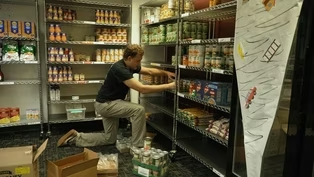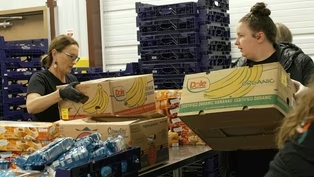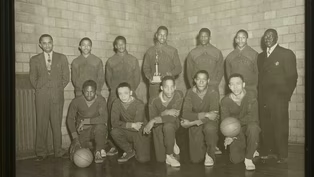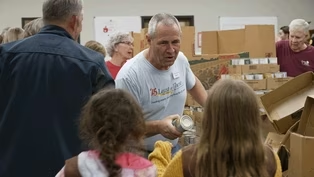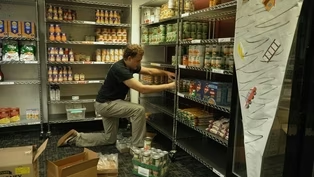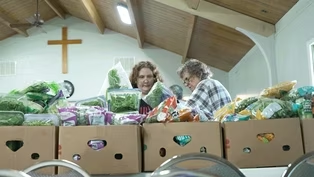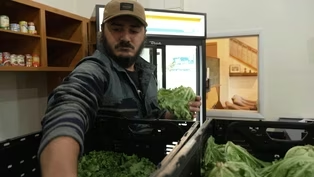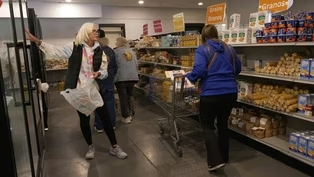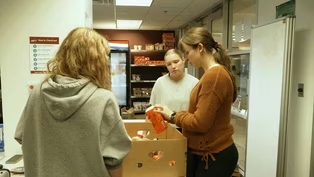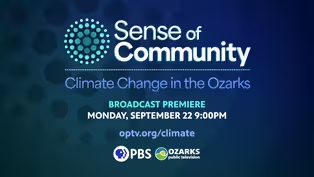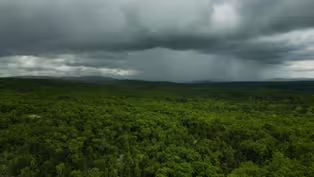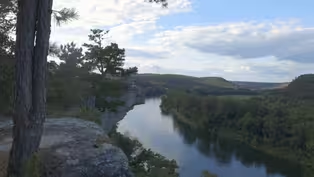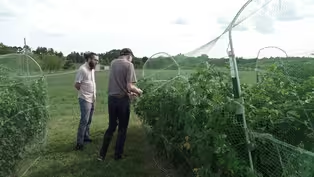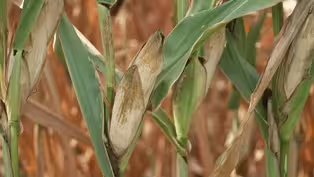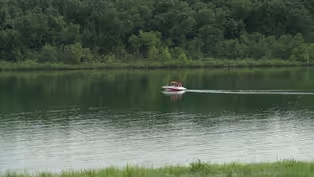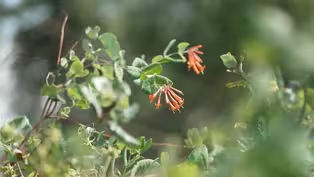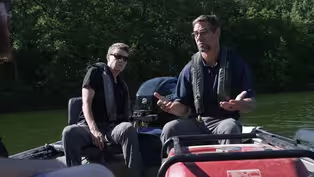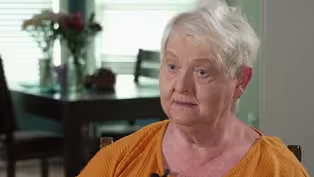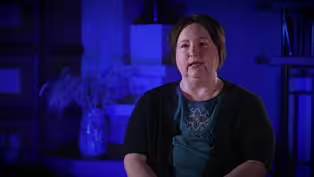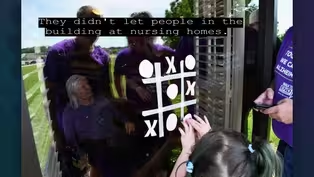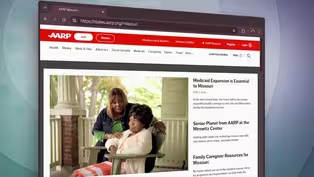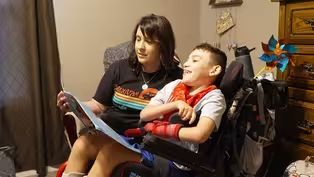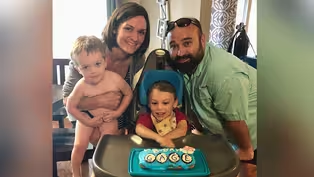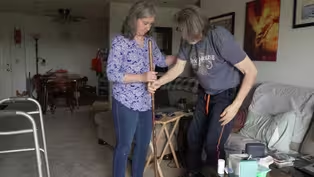Sense of Community
Choosing Native
Clip | 3m 2sVideo has Closed Captions
Native plants serve as a unique solution to the obstacles faced by Ozarks wildlife and habitat.
Missouri Master Naturalist Barbara Kipfer presents a case for choosing native plants for residential yards and gardens while expert Mike Kromrey explains the importance of native plants in the Ozarks.
Problems playing video? | Closed Captioning Feedback
Problems playing video? | Closed Captioning Feedback
Sense of Community is a local public television program presented by OPT
Sense of Community
Choosing Native
Clip | 3m 2sVideo has Closed Captions
Missouri Master Naturalist Barbara Kipfer presents a case for choosing native plants for residential yards and gardens while expert Mike Kromrey explains the importance of native plants in the Ozarks.
Problems playing video? | Closed Captioning Feedback
How to Watch Sense of Community
Sense of Community is available to stream on pbs.org and the free PBS App, available on iPhone, Apple TV, Android TV, Android smartphones, Amazon Fire TV, Amazon Fire Tablet, Roku, Samsung Smart TV, and Vizio.
[AUDIO LOGO] BARBARA KIPFER: When we moved here in 1973, this was a very sterile neighborhood.
Everybody had the same plants in their yard, the same things that didn't support any wildlife at all, just looked decent.
And then at some point, I learned that if I planted native plants, I would have a much more interesting yard.
And that certainly is what has happened.
Native plants, once they're established, do so well.
You don't have to water them or fertilize them.
And the best time to plant them is actually in the fall when they don't have the issues of heat and drought.
Native plants are a beautiful and wonderful tool for water quality.
They're also good for reasons like habitat.
The more species you have, the more ecological niches are filled, the more resilient that system is.
You're nurturing more than just plants.
You're nurturing birds, reptiles, animals of all kinds.
It makes your yard really interesting.
It's not boring.
So in the springtime, the first thing that blooms is the clove currant over there.
It smells heavenly.
And you'll see all kinds of critters all over the clove currant.
You can see just an immense amount of pollinators on it.
I see honeybees.
I see native bees.
A lot of these organisms need native plants to survive.
So this is Cliff Goldenrod.
They can just stick out like you see here.
You can see the little berries that are forming on there, and that will feed some of the wildlife.
To have a healthy corridor is to have a corridor with lots of Native plants, lots of grasses and trees, particularly shrubs.
Dense vegetation, that helps slow down floods.
It helps prevent erosion, helps keep the water cool.
Ultimately, it helps the stream be healthier and keep your yard or your hayfield from eroding away.
So it's a great strategy to plan and mitigate climate impacts that we're seeing here in the Ozarks right now.
We really advocate for native plants.
They're food for local wildlife.
They're adapted to our local soils, so they don't need fertilizer.
They're adapted to our climate.
Once they're established, they don't need to be irrigated.
They have wonderfully deep roots, which are a great water quality benefit.
They improve soil.
They help uptake nutrients that would maybe otherwise run off.
And they're just beautiful.
So native plants are such a wonderful thing for anybody to learn about and to grow.
BARBARA KIPFER: I also get to share this with my neighbors.
So when they see, sometimes some of them actually become converted.
Preview | 30s | Ozarks nonprofits strive to make sure no one goes hungry (30s)
Video has Closed Captions
Clip | 2m 15s | Ozarks Food Harvest partners with another local nonprofit to provide fresh produce for those in need (2m 15s)
Video has Closed Captions
Clip | 2m 30s | Joplin area residents come together each week to help a local nonprofit feed their community (2m 30s)
Video has Closed Captions
Clip | 2m 10s | A food pantry in Ozark provides, food, education and resources to those in need (2m 10s)
Video has Closed Captions
Clip | 2m 30s | Families in the Ozarks face difficult choices between buying food and paying rent (2m 30s)
Video has Closed Captions
Clip | 2m | Volunteers make sure unused crops get to those facing hunger (2m)
Video has Closed Captions
Clip | 2m | Community fridges across Springfield are helping to feed those who would otherwise go hungry (2m)
Video has Closed Captions
Clip | 2m 20s | Christian Action Ministries works to fill a need in Stone and Taney Counties (2m 20s)
Video has Closed Captions
Clip | 2m 20s | The Bear Pantry challenges conceptions of what food insecurity looks like (2m 20s)
Video has Closed Captions
Clip | 20s | Climate Change in the Ozarks - Broadcast Premiere Sept, 22 at 9pm (20s)
Video has Closed Captions
Clip | 5m 30s | Experts weigh in on the impacts of climate change on the Ozarks and suggest possible solutions. (5m 30s)
Video has Closed Captions
Clip | 5m 45s | Climate change creates greater rainfall in the Ozarks, negatively impacting our rivers. (5m 45s)
Video has Closed Captions
Clip | 3m 10s | Ozarks researchers work diligently to provide solutions to agricultural challenges (3m 10s)
Video has Closed Captions
Clip | 3m 48s | A local farmer describes the challenges of growing crops in a changing Ozarks climate. (3m 48s)
Video has Closed Captions
Clip | 3m 50s | As a growing population in the Ozarks consumes more water, the need for new sources arises. (3m 50s)
Video has Closed Captions
Clip | 3m 2s | Native plants serve as a unique solution to the obstacles faced by Ozarks wildlife and habitat. (3m 2s)
Video has Closed Captions
Clip | 3m 51s | Floating wetlands present a unique solution to the problem of algal blooms in the Ozarks. (3m 51s)
Video has Closed Captions
Clip | 1m 45s | Young caregivers, often driven by gender norms, face challenges but grow personally (1m 45s)
Awareness Rising: The Future of Caregiving
Video has Closed Captions
Clip | 1m 58s | Experts stress caregiving awareness; hospice care users share how it deepened their bond (1m 58s)
Video has Closed Captions
Clip | 2m | Caregivers reflect on emotional toll, stress rest, reflection, and daily joy to reframe caregiving (2m)
Video has Closed Captions
Clip | 1m 58s | COVID isolation impacted personal connection's role in health and happiness (1m 58s)
Tackling Missouri’s Dementia Crisis
Video has Closed Captions
Clip | 1m 50s | 130,000 Missourians have dementia; 250,000 unpaid caregivers face isolation, service gaps. (1m 50s)
Redefining Care: Finding Support and Recognition
Video has Closed Captions
Clip | 1m 50s | Caring for a disabled child brings emotional, financial hurdles; need for better access to support (1m 50s)
Video has Closed Captions
Clip | 1m 58s | Caregivers share emotional struggles while experts suggest therapy, and peer support for stress. (1m 58s)
Video has Closed Captions
Clip | 1m 50s | Caregivers often experience depression, fatigue, and medical crises, and emotional strain (1m 50s)
Providing Support for PBS.org
Learn Moreabout PBS online sponsorship
- News and Public Affairs

Top journalists deliver compelling original analysis of the hour's headlines.

- News and Public Affairs

FRONTLINE is investigative journalism that questions, explains and changes our world.












Support for PBS provided by:
Sense of Community is a local public television program presented by OPT
